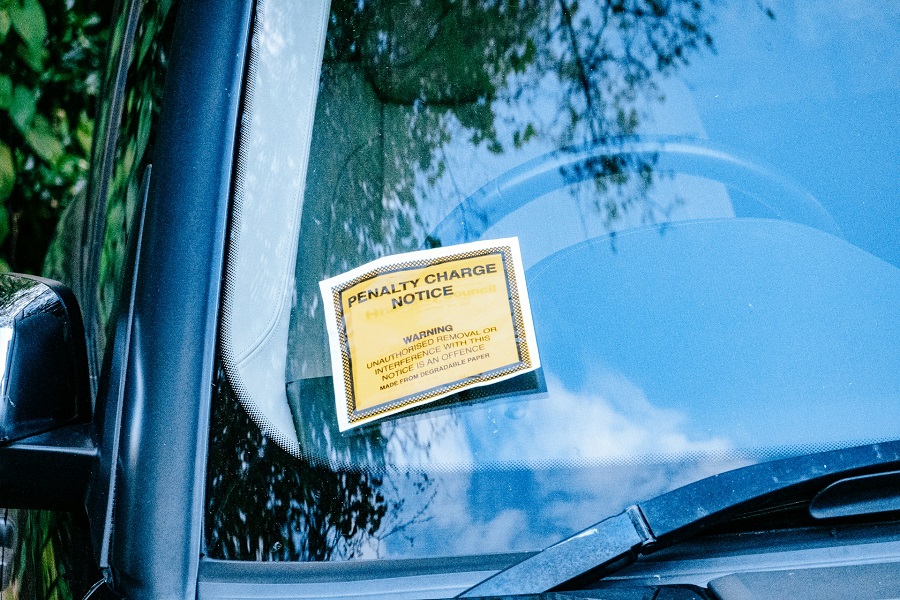I received a Penalty Charge Notice (PCN): What are my options to challenge it?

Staring at that PCN in disbelief? While councils and parking companies count on you paying without question, the reality is that many appeals succeed when properly executed. This guide cuts through the bureaucratic maze of civil enforcement, equipping you with battle-tested strategies that experienced drivers use to contest unfair tickets. The following sections outline exactly what works, what doesn’t, and how to craft an appeal that demands attention. Before surrendering your hard-earned money, give yourself a fighting chance; and for those facing particularly complex situations, a consultation with a solicitor could prove invaluable.

Key Takeaway: Is it worth appealing a PCN?
Read on to discover the exact step-by-step process successful appellants use to overturn unfair parking penalties.
Valid grounds for appealing a PCN
Every PCN, whether council-issued PCN’s or private parking charges, can be scrutinised for potential weaknesses and successful appeals rely on solid legal grounds rather than mere excuses:
- Inadequate or unclear signage remains one of the strongest grounds for appeal. If restrictions weren’t clearly indicated, the civil enforcement officer shouldn’t have issued the ticket.
- Technical errors provide straightforward grounds for appeal. Check if your vehicle details, location, time, or alleged contravention are accurately recorded. Any material error could invalidate the PCN entirely.
- Mitigating circumstances can justify otherwise prohibited parking. Medical emergencies, vehicle breakdowns, or attending to vulnerable individuals may constitute legitimate reasons when properly evidenced.
- Other legitimate grounds include: the contravention didn’t actually occur, the PCN was issued too early, you weren’t the owner when the violation occurred, or the penalty exceeds the appropriate amount.
The council PCN appeal process: Step-by-step
Challenging a council PCN follows a clearly defined pathway with strict timeframes at each stage:
- Begin with an informal challenge within 14 days of receiving the PCN. This preserves your right to the discounted payment rate if unsuccessful. Include your PCN number, vehicle details, and concisely explain your grounds for civil enforcement PCN appeal with supporting evidence.
- If rejected, you’ll receive a Notice to Owner (NTO). This triggers the formal appeal Complete the form provided, restate your grounds, attach evidence, and submit within 28 days. The council must respond with a formal decision notice.
- When formal appeals fail, you have the right to escalate to independent adjudication through the Traffic Penalty Tribunal or London Tribunals. This service is free, impartial, and represents your final opportunity within the civil enforcement system to overturn the PCN.
Appealing private parking charges
Private parking charges follow entirely different rules from council PCNs, operating under contract law rather than traffic regulations:
- Always appeal directly to the parking operator first, following instructions on their notice. Submit your appeal within their stated timeframe, typically 28 days, addressing the specific contractual terms they claim you breached.
- Remember that private operators must prove a clear contract existed between you and them. Check if signage was conspicuous, terms were reasonable, and the operator is accredited by a recognised trade association.
- If your initial appeal fails, you can escalate to independent appeals services: POPLA (Parking on Private Land Appeals) for British Parking Association members or IAS (Independent Appeals Service) for International Parking Community members.
Crafting a successful appeal letter
Your appeal letter serves as your legal defense. Structure it carefully to maximise impact:
- Begin with essential identifying information: your name, address, vehicle registration, PCN number, and date of issue. State clearly that you’re making a formal appeal against the penalty charge.
- Present your grounds for appeal logically, addressing one point at a time with specific references to supporting evidence. Maintain a professional, factual tone throughout; emotional arguments rarely succeed in civil enforcement
- Include a clear conclusion restating your request for the PCN to be cancelled, followed by your signature and date. Attach copies (never originals) of all supporting evidence, clearly labelled and referenced in your letter.
- Avoid common pitfalls such as excessive length, apologetic language, irrelevant details, or admitting partial fault; these undermine otherwise strong appeals.
Sample appeal letter
[Council Name / Parking Operator]
[Their Address]
[Their Postcode]
[Your Full Name]
[Your Address]
[Your Postcode]
[Your Email Address]
[Your Phone Number]
[Date]
Reference: PCN Number [Insert PCN Number]
Vehicle Registration: [Your Vehicle Registration]
Dear Sir/Madam,
RE: Appeal Against Penalty Charge Notice [PCN Number]
I am writing to formally appeal against the above Penalty Charge Notice issued on [date] at [location].
I believe this PCN should be cancelled for the following reason(s):
[Select relevant ground, for example:]
The parking restriction signs in this area were obscured by overgrown foliage, making it impossible to see that parking restrictions were in force. Under the Traffic Signs Regulations and General Directions 2016, signs must be clearly visible to motorists.
[Provide specific details about your case:]
I parked my vehicle at approximately [time] on [date]. Upon returning at [time], I found the PCN attached to my windscreen. I immediately photographed the area, including the obscured signage, which I have attached as evidence. As you can see from photographs 1 and 2, the critical information regarding restricted hours is not visible from a normal viewing position.
I have enclosed the following evidence to support my appeal:
- Photographs showing the obscured signage
- [Any other relevant evidence]
Based on the above information and the enclosed evidence, I request that this PCN be cancelled.
Thank you for your consideration of this matter. I look forward to your response.
Yours faithfully,
[Signature]
[Your Full Name]
Do I need a solicitor to appeal a PCN?
While many PCN appeals can be handled directly by motorists, professional legal representation offers distinct advantages in certain situations:
- Consider consulting a solicitor when the penalty amount is substantial, when multiple PCNs have accumulated into significant debt, or when enforcement agents are already involved in your case.
- Legal assistance proves particularly beneficial if your case involves complex legal arguments, such as challenging the validity of a Traffic Regulation Order, or if you’re dealing with aggressive civil enforcement tactics that appear potentially unlawful.
- Even for standard PCNs, solicitors specialising in traffic law bring valuable expertise; identifying technical defences you might miss and framing arguments in legally precise language that resonates with adjudicators.
FAQs
- Can I appeal if I’ve already paid the PCN? Once you’ve paid a PCN, you’ve effectively admitted liability and forfeited your right to appeal. Always consider challenging a PCN before making any payment, even if you’re unsure about your grounds.
- Will appealing a PCN affect my driving license or insurance? PCNs are civil enforcement matters, not criminal offenses. They don’t add points to your license or directly impact your insurance premiums, regardless of whether you pay or appeal.
- If my informal challenge is rejected but I don’t receive a Notice to Owner, what should I do? Contact the issuing authority. The civil enforcement process requires proper service of an NTO before further action. Without it, you cannot submit a formal appeal or be legally liable for the full penalty amount.
Fighting a PCN requires persistence and careful preparation, but with the right approach, many unjust penalties can be overturned. By following the structured appeal process and presenting strong evidence, you give yourself the best chance of success in challenging civil enforcement decisions.
Uncertain about your PCN appeal chances?
Visit Qredible.co.uk now to connect with a solicitor who can transform your appeal strategy and potentially save you hundreds of pounds.
KEY TAKEAWAYS
- Correctly identifying your notice type (council PCN or private parking charge) is crucial as each follows entirely different appeal processes and legal frameworks.
- Valid grounds for appeal include technical errors, mitigating circumstances, inadequate signage, and procedural failures by the issuing authority.
- The council PCN appeal process follows three distinct stages: informal challenge, formal appeal, and independent tribunal adjudication, each with strict deadlines.
- A well-crafted appeal letter with clear identification details, logical arguments, and properly referenced evidence significantly increases your chances of success.
Do you need a solicitor?
Find a solicitor on Qredible in just a few easy steps











